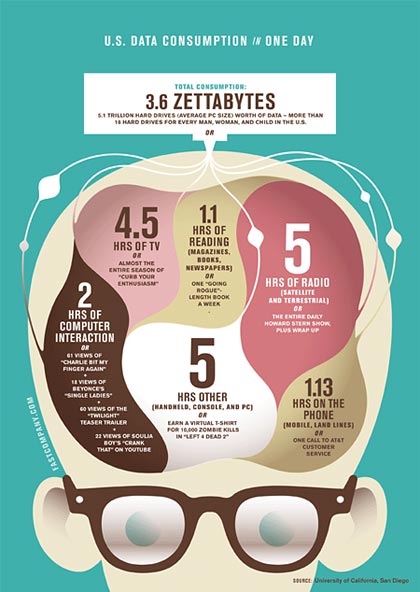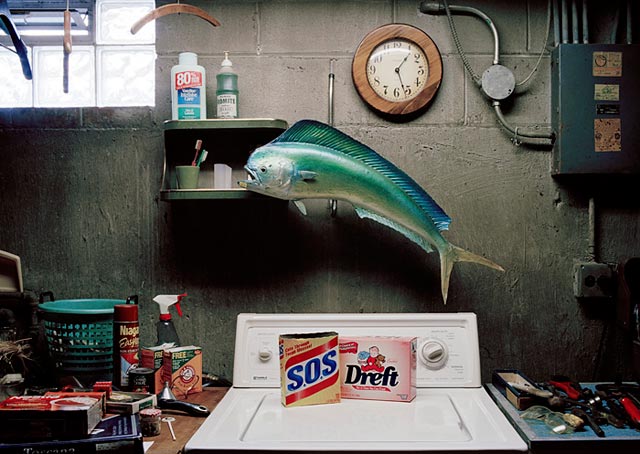I’m the Crawlin’ King Snake and I rule my den
The art boom of 2004-07 saw such staggering growth, particularly in contemporary art, that it is hardly surprising that art is increasingly being commoditised, bundled into funds and flagged up as an alternative asset class.
But while most people can recognise a Warhol or a Picasso at 10 paces, they have far less knowledge of the complex issues inherent in trading something that is almost always heterogeneous, in an opaque and unregulated market. (…)
The editor of this book, Clare McAndrew (…) makes the fundamental point that “one of the most important economic features of the market is that it is essentially supply-driven … increased demand … cannot necessarily increase supply … and instead elevates prices”. (…)
Moreover, how do you assess the price of a painting when four Picasso portraits of Dora Maar, all from the 1940s and of comparable size, can sell for between $4.5m and $85m within a three-year period?
You said you’d stand by me in the middle of Chapter Three

Analyses of classic authors’ works provide a way to “linguistically fingerprint” them, researchers say.
The relationship between the number of words an author uses only once and the length of a work forms an identifier for them, they argue.
Analyses of works by Herman Melville, Thomas Hardy, and DH Lawrence showed these “unique word” charts are specific to each author.
Researchers also suggest each author pulls their works from a hypothetical “meta book”. One description of this concept might be a framework for the way an author uses language. It is from this framework that all their works are ultimately derived.
photo { Andy Tew }
‘The advantage of a bad memory is that one enjoys several times the same good things for the first time.’ –Nietzsche
Elizabeth Förster-Nietzsche, who went on to become a prominent supporter of Adolf Hitler, systematically falsified her brother’s works and letters, according to the Nietzsche Encyclopedia.
Christian Niemeyer, the publisher, said he wanted to clear the revered thinker’s reputation by showing the “criminally scandalous” forgeries by his sister had tainted his reputation ever since.
related { Nitezsche page | Stanford Encyclopedia of Philosophy }
‘Take me, I am the drug.’ –Salvador Dalí

{ The Crayola’s Law: The number of colors doubles every 28 years | Weather Sealed | Full story }
‘Still a man hears what he wants to hear, and disregards the rest.’ –Paul Simon

{ How much data do Americans consume each day? | Good | Enlarge }
People are strange when you’re a stranger

{ Mata Hari in 1906 | Mata Hari was a Dutch-born erotic dancer and courtesan living in Paris who was executed by firing squad for espionage during World War I. | Wikipedia | Continue reading | More double agents }
Every day, the same, again
 Woman charged after biting ER nurse, throwing vomit.
Woman charged after biting ER nurse, throwing vomit.
Scientists stop burying live pigs in snow. Growing media pressure generated by activists called it cruel and pointless.
Call it pork in a petri dish - a technique to turn pig stem cells into strips of meat that scientists say could one day offer a green alternative to raising livestock, help alleviate world hunger, and save some pigs their bacon.
Shanghai man lands on lover, survives suicide jump.
Chaos at Phoenix strip club ends with man dead.
Weight Watchers clinic floor collapses under slimmers’ weight.
Man accused of spraying protesters with fox urine.
Tourist killed by ‘dinosaur-sized’ shark off South African beach. Zimbabwean holidaymaker eaten by shark described by onlookers as ‘longer than a minibus.’
US moves to ban 9 species of snakes.
Solar-powered bibles sent to Haiti.
China’s share of world markets increased during the recession. It will keep rising.
The day I decided to stop being gay.
They’re here, they’re queer, and they’re not going home until they kick some ass. Meet the fearsome gay gangsters of Bash Back. Related: Why does mixed-martial arts have such a following in the gay community?
More men marrying wealthier women.
 Alligators breathe like birds.
Alligators breathe like birds.
Why antidepressants don’t work for half of patients.
A brief history of bipolar kids.
Why we act without thinking. Three classic experiments show how stereotypes can influence our behaviour without our knowledge.
How our brains build social worlds.
Older brains make good use of ‘useless’ information.
Phineas Gage: brain-injury survivor, neuroscience’s most famous patient.
What does bell ringing have to do with maths?
Both musicians and non-musicians can perceive bitonality.
Apple to unveil ‘latest creation’ on Jan. 27.
Why a NYT paywall is a bad idea.
Why the NYT Is wary of an Apple Tablet deal.
Interview with a yellow cab driver.
NYPD’s latest crackdown on using hand-held cellphones while driving starts at 12:01 a.m. Thursday.
Why are traffic jams so bad on Mondays?
 How to start a speech: Tell a story.
How to start a speech: Tell a story.
How do “scratch-’n'-sniff” cards work?
The murder of Leo Tolstoy: A forensic investigation.
Authentic and counterfeit shrunken-heads? Counterfeit heads prepared by someone other than the Jivaro Indians are usually, much more skillfully prepared through the use of superior equipment, than the actual work of the Jivaros.
Scientists say no two snowflakes are alike. Apparently, designers have their own opinion.
How can you show the details of a history visually? Timelines and Visual Histories.
Obama head selling chicken balls.
Harrison Ford’s movie career heading in the wrong direction.
Spades dance best, from the hip
Are you a media multitasker? We know you’re reading a blog, but what else are you doing right now? Take a quick inventory: Are you also listening to music? Monitoring the progress of a sports game on TV? Emailing your co-worker? Texting your friend? On hold with tech support? If your inventory has revealed a multitasking lifestyle, you are not alone. Media multitasking is increasingly common, to the extent that some have dubbed today’s teens “Generation M.” (…)
However, new research suggests that people who multitask suffer from a problem: weaker self-control ability.
Three sick holes that run like sores
In the 19th and 20th centuries we made stuff: corn and steel and trucks. Now, we make protocols: sets of instructions. A software program is a protocol for organizing information. A new drug is a protocol for organizing chemicals. Wal-Mart produces protocols for moving and marketing consumer goods. Even when you are buying a car, you are mostly paying for the knowledge embedded in its design, not the metal and glass.
A protocol economy has very different properties than a physical stuff economy. For example, you and I can’t use the same piece of metal at the same time. But you and I can use the same software program at the same time. Physical stuff is subject to the laws of scarcity: you can use up your timber. But it’s hard to use up a good idea. Prices for material goods tend toward equilibrium, depending on supply and demand. Equilibrium doesn’t really apply to the market for new ideas.
Why pamper life’s complexities when the leather runs smooth on the passenger seat?

We use coin tosses to settle disputes and decide outcomes because we believe they are unbiased with 50-50 odds.
Yet recent research into coin flips has discovered that the laws of mechanics determine the outcome of coin tosses: The startling finding is they aren’t random. Instead, for natural flips, the chance of a coin coming up on the same side as it started is about 51 percent. Heads facing up predicts heads; tails facing up predicts tails.
There’s this store where the creatures meet, I wonder what they do in there

Jeanette’s Taxidermy proudly introduces Pet Pillows as an alternative way to remember your pet. Each pet pillow is hand made from the fur of your pet and made into a pillow that you can display. On one side of the pillow is your pet’s fur and the other side of the pillow is your choice of fabric. These soft, huggable pillows are a great way to enjoy your cherished pet and is an inexpensive alternitave to taxidermy.
Prices: $65 for a cat, $75-$125 for a dog, $150 for a horse.
Freeze your pet immediately upon passing to insure there will be no hair slippage.
Double bag to insure no freezerburn.
Ship packages ONLY on Mondays to prevent carrier mishaps. All frozen animals must be shipped next day air to insure against spoilage.
{ Thanks Shampoo! | The site Jeanettestaxidermy.com doesn’t exist anymore | Jeanette’s Taxidermy profile on Muley Madness | Read more: Woman who turns pets into pillows faces death threats and Taxidermist Jeanette Hall standing with her pedestal mounted horse | The story behind this photo }
Ride on! Weooooo! Wawa, eooo!
Are pillow fights more dangerous than roller coasters?
A paper compared head motions that occurred in 4 participants when they rode 3 different roller coasters, drove bumper cars, and had a pillow fight. What are the implications for brain injury? they asked. (…) “The highest level of rotational acceleration was measured during the pillow fight. Interestingly, the pillow fight generated peak head accelerations and velocities greater than the 3 roller coaster rides.”
Oh Fucshia! You leave me.
A new study suggests that the first letter in your name could be linked to your longevity. If your name starts with “A,” then you probably have no cause for concern, but if your name begins with “D,” study authors suggest the letter’s symbolic significance could result in you dying sooner than your peers, reports the Daily Mail.
Love in vain, and miles and miles and miles away from home again

Swinging has taken on a key role among contemporary sexual customs, consequently constituting the subject matter of various contributions in the fields of psychology, sociology and other social sciences. However, in spite of the constant increase in the number of couples involved and in the economic relevance of this phenomenon, to the best of my knowledge no article on the topic has yet appeared in economics journals. The aim of this paper is to cast light on swinging, both empirically and theoretically.
On the empirical side, the paper describes what swinger is, discusses the economic relevance of the phenomenon and singles out the main characteristics of swingers’ behavior. To this end, the Italian situation has been considered as a type of case study. On the theoretical side, the paper proposes some preliminary assessments of the causes and consequences of swinger couples’ behavior. In this respect, some contributions on two-sided markets, hedonic adaptation approaches and equilibrium matching models have proved particularly useful.
{ Fabio D’Orlando, Swinger Economics, 2009 | via Perfect Substitute | with link to PDF }
polaroid { Dash Snow }
We walked around a lake and woke up in the rain

I also learned of Kandinsky’s growing love affair with the circle. The circle, he wrote, is “the most modest form, but asserts itself unconditionally.” It is “simultaneously stable and unstable,” “loud and soft,” “a single tension that carries countless tensions within it.” (…)
Quirkily enough, the artist’s life followed a circular form: He was born in December 1866, and he died the same month in 1944. This being December, I’d like to honor Kandinsky through his favorite geometry, by celebrating the circle and giving a cheer for the sphere. Life as we know it must be lived in the round, and the natural world abounds in circular objects at every scale we can scan. Let a heavenly body get big enough for gravity to weigh in, and you will have yourself a ball. Stars are giant, usually symmetrical balls of radiant gas, while the definition of both a planet like Jupiter and a plutoid like Pluto is a celestial object orbiting a star that is itself massive enough to be largely round.
On a more down-to-earth level, eyeballs live up to their name by being as round as marbles, and, like Jonathan Swift’s ditty about fleas upon fleas, those soulful orbs are inscribed with circular irises that in turn are pierced by circular pupils. Or think of the curved human breast and its bull’s-eye areola and nipple.













